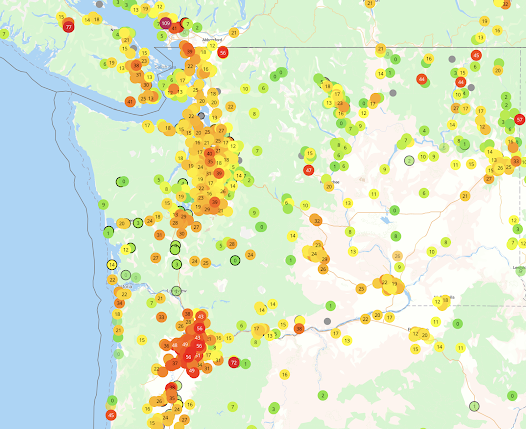A Dry Winter for Washington State But Not For the Rest of the West Coast: But Change is Coming!
If one looks at the precipitation for the winter season (the water year starting October 1), as shown below, the north-south contrasts have been profound. California and the Southwest have been hugely wetter than normal (some places enjoying over 250% of typical winter precipitation), while much of Washington and portions of Oregon have received 70-100% of typical values.
As I will discuss in a future blog, these wet conditions have significant implications for the upcoming wildfire season, since they will promote the bountiful growth of seasonal grasses, which inevitably dry out during summer. The wet conditions in California have decidedly terminated the short-term drought there.
Although Washington State has been drier than normal, it has been colder than normal. The result is the preservation of our snowpack (see below). Thus, the regional snowpack is in very good shape (near normal in WA, above normal in Oregon). California has a crazy high snowpack.
But as we go later into spring, the tendency for the jet stream to push back to the north is powerful. And that will be very good for water resources over Washington and British Columbia.
Precipitation is already moving in from a weak system (see radar image below)
But this is only a meteorological "appetizer" for the main weather event. A relatively potent atmospheric river will arrive on Sunday (see the plume of water vapor for Sunday afternoon)
And the result will be considerable precipitation over the region (see the totals through 5 PM Sunday). Southwest BC will get hit particularly hard.
With a reasonable snowpack and upcoming precipitation, the water situation this summer appears reasonable.
___________________
It's Husky Giving Day at the University of Washington, and if anyone wishes to contribute to the Atmospheric Sciences Department go here.
___________________
Reminder: for those interested in giving a talk at the Northwest Weather Workshop in May, please send me a title/abstract soon.





.gif)



Comments
Post a Comment